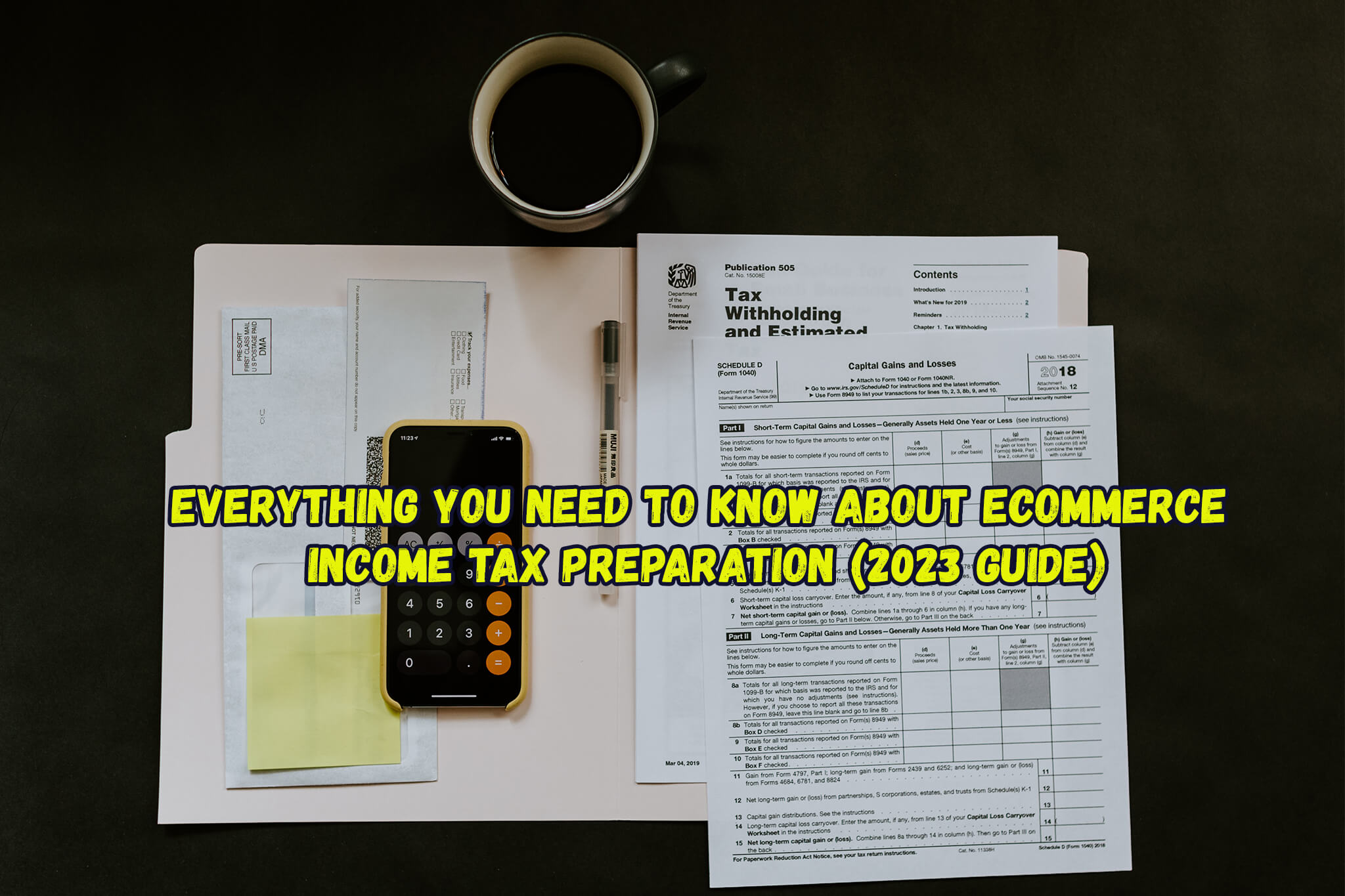
PreparationEcommerce income tax preparation involves the filing of taxes for online businesses. It is important to understand the various aspects involved in preparing eCommerce taxes, from understanding applicable laws and regulations to keeping accurate records of sales and expenses. This guide provides a comprehensive overview of eCommerce income tax preparation, including what it entails, how to prepare your taxes and more.
Here are some key points to consider in your tax preparation
What You Need to Know Before Starting Your Taxes
Before you begin your eCommerce income tax preparation, it’s important to understand any applicable laws and regulations, as well as make sure you have all the necessary documents. In addition, familiarize yourself with any deductions or credits you might qualify for so that you can maximize your return. Additionally, it’s important to choose reliable tax preparation software to help ensure your returns are filed accurately and on time.
Federal Taxes on Ecommerce Businesses
When filing your federal taxes, you will need to report any income earned from the sale of goods or services. It is important to note that there are different tax rates based on whether the income is classified as self-employment income or regular business profits. Additionally, it’s important to track and report any expenses related to running your online business so that you can deduct these from your taxable income.
State and Local Taxes on Ecommerce Businesses
In addition to federal taxes, you may also need to file state and/or local taxes depending on the location of your online business. Each state or locality will have its own specific laws and regulations regarding eCommerce businesses, so it’s important to understand these before filing. Additionally, certain states may require you to collect and remit sales tax from customers.
Deducting Expenses from Your Ecommerce Income Taxes
When filing your eCommerce income taxes, you can deduct certain expenses from your taxable income. This includes any costs related to running an online business, such as website hosting fees, advertising costs, and payment processing fees. Additionally, be sure to keep detailed records of all of your sales and expenses so that you can accurately calculate the amount of taxes owed.
Filing Your Tax Return with the IRS
When you are ready to file your eCommerce income tax return, you can do so through the IRS website. Make sure that all of your information is accurate and complete before submitting, as any errors can lead to penalties or delays in processing. Additionally, it’s important to keep copies of all relevant documents for future reference.
Conclusion
Ecommerce income tax preparation is an important process for any online business owner. It’s important to understand the applicable laws and regulations, keep accurate records of sales and expenses, calculate taxes owed, and file returns in a timely manner. Additionally, take advantage of deductions and credits, and use reliable tax preparation software to help ensure your returns are filed accurately and on time. Properly preparing for eCommerce taxes can help you maximize your return and avoid any potential penalties.
You should always consult a certified accountant or tax professional with questions about eCommerce income tax preparation. They can provide guidance specific to your online business, helping you navigate the process and optimize your return.



